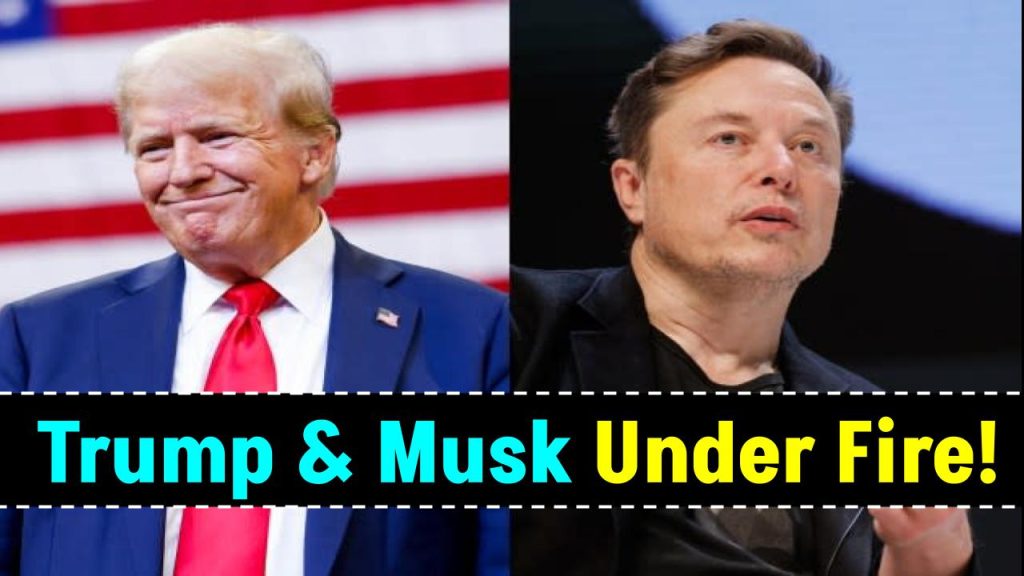
As of February 17, 2025, President Donald Trump and Elon Musk are both facing escalating legal battles that could significantly impact the U.S. government. President Trump, who recently returned to office on January 20, 2025, has been aggressively using executive power, leading to lawsuits challenging the scope of presidential authority. Meanwhile, Elon Musk, who was appointed by Trump to lead the controversial Department of Government Efficiency (DOGE), is under fire for allegedly exceeding his authority in government restructuring efforts.
These legal challenges are gaining momentum, with multiple cases expected to reach the U.S. Supreme Court. This article will break down the key lawsuits, what’s at stake, and how the Supreme Court’s decisions could reshape executive power.
Trump & Musk Under Fire
| Topic | Details |
|---|---|
| Trump’s Legal Challenges | Facing lawsuits over the firing of federal officials and using unitary executive powers to bypass Congress. |
| Elon Musk’s Legal Issues | Sued by 14 states over his appointment and efforts to dismantle government programs without congressional approval. |
| Supreme Court Involvement | Several cases could determine the constitutional limits of executive power and presidential appointments. |
| Potential Impact | Landmark rulings could redefine the authority of the President and independent government agencies. |
| Official References | Supreme Court Cases |
The legal battles involving Donald Trump and Elon Musk are shaping up to be some of the most consequential in modern U.S. history. With lawsuits challenging the limits of executive power, presidential appointments, and government efficiency reforms, the Supreme Court’s rulings will determine how much power a President truly holds.
If Trump wins these cases, the presidency will gain unprecedented control over federal agencies and policy decisions. If he loses, the courts will reaffirm the constitutional limits on presidential power.
Either way, these lawsuits will set the stage for the future of executive authority in the U.S.
Also Check: Railway Holiday Calendar 2025! Check Full List of Holidays for Railway Employees!
Trump & Musk Under Fire Legal Challenges
Supreme Court Case Over Firing a Federal Watchdog
One of the biggest cases against President Trump is his attempt to fire Hampton Dellinger, the head of the Office of Special Counsel (OSC). This office is responsible for protecting government whistleblowers.
- Why This Matters: Dellinger was appointed during the Biden administration, and a federal judge temporarily reinstated him, citing laws that protect the independence of certain watchdog agencies.
- Trump’s Argument: The administration argues that the President has the authority to fire any official serving in the executive branch.
- Legal Counterpoint: Critics say this violates the principle of checks and balances, preventing a President from removing independent oversight officials at will.
This case could set a precedent for how much power a U.S. President has over independent agencies.
Trump’s Use of “Unitary Executive” Power
Another major legal battle centers around Trump’s use of the unitary executive theory, which suggests that all executive power rests solely with the President.
- What Trump Has Done:
- Removed members of independent federal agencies who opposed his policies.
- Refused to allocate congressionally approved funds to certain programs.
- Issued executive orders overriding agency decisions.
- Why This Matters: If the Supreme Court backs Trump, future Presidents could have more control over government agencies, potentially weakening Congressional power.
Also Check: School Holidays Extended in Uttar Pradesh: Schools to Remain Closed from February 17 to 20
Trump & Musk Under Fire Elon Musk’s Legal Challenges
Lawsuit Over Musk’s Appointment
Elon Musk was controversially appointed as the head of the Department of Government Efficiency (DOGE) by Trump without Senate confirmation.
- What’s at Stake?
- 14 states have sued, arguing that Musk’s position violates the U.S. Constitution’s Appointments Clause, which states that high-ranking federal officials must be confirmed by the Senate.
- Legal experts argue that Musk is exercising federal power unlawfully, since he was never vetted through Congress.
If the courts rule against Musk, it could limit a President’s ability to appoint high-profile figures without oversight.
Legal Battle Over Government Restructuring
Musk has pushed for radical changes in government efficiency, including:
- Dismantling diversity and inclusion programs
- Eliminating regulations that slow down business contracts
- Cutting agency budgets without Congressional approval
- Opposition’s Argument: These actions require Congressional authorization, and Musk does not have the legal authority to unilaterally implement policy changes.
- Trump’s Response: The administration claims Musk is simply “streamlining” government operations.
This lawsuit could set a precedent for whether a President can empower a private-sector leader to make federal changes without formal approval.
Also Check: New Traffic Rule: Drive Carelessly & Pay ₹2 Lakh Fine – Shocking Penalty Update!
Trump & Musk Under Fire: What Happens Next?
Several major legal battles are now heading to the Supreme Court, where the justices will determine:
- Can the President fire independent watchdogs at will?
- Does the “unitary executive” theory give the President unchecked power?
- Can a President appoint high-ranking officials without Senate approval?
- Can a government agency head like Musk make sweeping changes without Congressional oversight?
These decisions could reshape the balance of power in Washington for decades to come.
Trump & Musk Under Fire (FAQs)
What is the “unitary executive” theory?
The unitary executive theory argues that the President has total control over the executive branch, including independent agencies. If upheld, it would give Presidents more power over government functions.
Why is Elon Musk involved in politics?
President Trump appointed Musk as head of the Department of Government Efficiency (DOGE) to cut red tape and increase government efficiency. However, critics argue his role is unconstitutional.
What happens if Trump loses these cases?
If Trump loses, it will limit his executive powers and reinforce the independence of government agencies. It could also force Musk to step down.
How soon will the Supreme Court rule on these cases?
Legal experts predict that key rulings could be issued within 6–12 months, with some cases likely to be decided before the 2026 midterm elections.
What impact could these cases have on future Presidents?
If Trump wins, future Presidents could have more authority to:
Fire agency heads without restriction.
Appoint officials without Senate confirmation.
Bypass Congress to implement policies.
If he loses, the judiciary will reinforce limits on presidential pow









